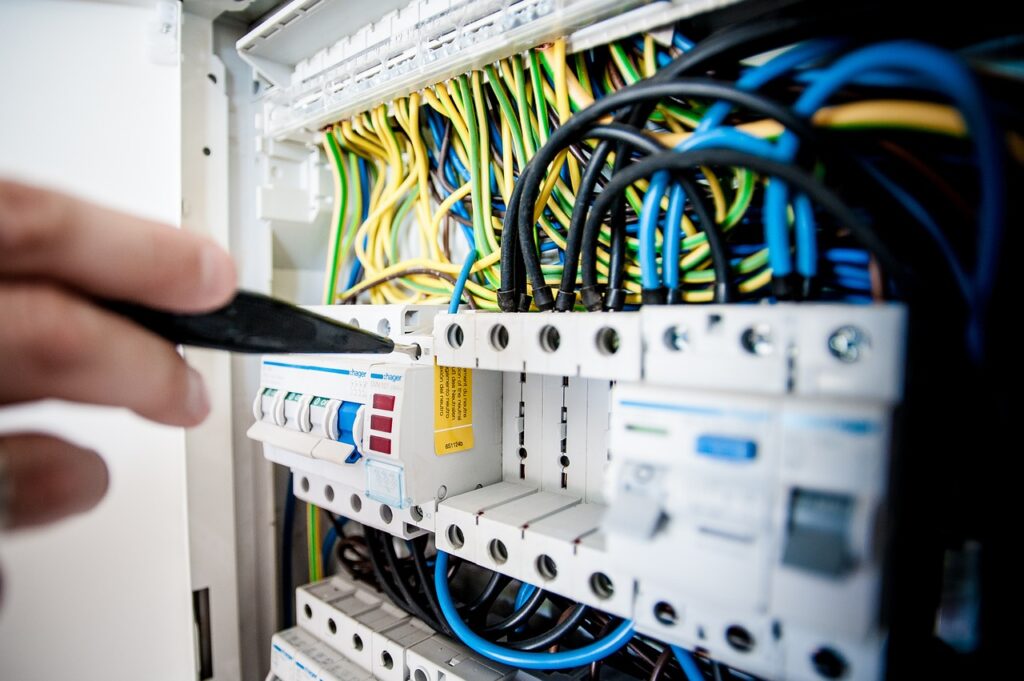Electricity is used extensively in Australian households for various tasks such as cooking, lighting, heating, entertainment, and other essential household activities. Between 2018-19 homes accounted for 10.5 percent of total energy use in Australia.
Although electricity has many benefits, there is also a risk associated with it. Every year in Australia, approximately 20 individuals die due to electrocution, with half of these deaths occurring in the home. Many of these tragedies are caused by defective or improper used household appliances. Electrically powered devices can be fatally dangerous, especially if they are not properly handled or maintained.
You might have different questions on what a building inspection covers, and its necessity. So, in this article, we will answer all your questions and help you to understand the importance of a building inspector in Adelaide.
Major Electrical Hazards at Home
Electrical shock, fire, and arc flash are the most common hazards associated with electrical faults. Let’s take a look at what each of these are in more detail.
Electrical Shock
Electrical shock occurs when an individual touches exposed electrical wires or metal that has come into contact with an electrical conductor causing it to become energized. The effects of an electrical shock range from a mild tingling sensation to serious cardiac arrest in some cases.
A variety of factors determines the severity and long-term consequences of an electrical shock. Including the amount of current received and how long you were exposed to live electricity.
Electrical Fires
Electrical fires are a common cause of house fires in Australia. According to recent statistics, electrical failure or faults are responsible for 20 percent of all fires. In addition, abnormally high voltage can generate power surges, harming electrical appliances and starting fires.
Similarly, a house fire can develop if the electrical system is overloaded. Generally the circuit breaker trips if the wiring exceeds its rated capacity. However, if the circuit breaker fails, the wiring overheats and melts, resulting in a fire.
Arc Flash
Electrical equipment emits a large quantity of concentrated radiant energy during an arc flash. A dangerous arc flash can occur in any electrical device with enough power to sustain an arc. This can happen on panel boards, transformers, and switchboards. An arc flash can cause hearing loss and blindness and can severely burn your body.
Signs Of an Electricity Faults at Home
Some electrical problems are easy to identify, such as those produced by corroded, rusted, or damaged electrical lines. If you’re buying an older home, a good building inspector should be able to identify some of the potential issues mentioned here. However, it’s always a good idea to get a professional electrician in to inspect anything that you’re unsure of.
For all electrical faults at home, contact the team of Toowoomba electricians that can fix the problem in a safe and timely manner.
Circuit Breakers That Keep Tripping
Circuit breakers in your switchboard panel are especially designed to shut down your power supply if the electricity demand exceeds the capacity of the circuit. This is designed to prevent overheating and fires in your electrical system.
Tripping circuit breakers could be an indication that there is a problem with your electrical system. If this is a frequent occurrence, then try disconnecting all appliances on that circuit and connect them to an outlet on a different circuit. If the tripping continues then you may have a faulty appliance. If the appliances work fine, then there could be an issue with the circuit itself requiring attention from an electrician.
Unusual Odors
If your appliances or outlets emit strange smells, you may have an electrical problem. Unfamiliar smells in newer appliances may result from the fresh paint on the equipment; however, if you sense a strange smell, like that of burned rubber or plastic, disconnect the device.
The circuit breakers should be turned off if the smell persists to avoid any problems. Don’t use any lights or electrical appliances until you have a licensed electrician on the scene.
Lights that Flicker often
Light fixtures usually emit steady light when turned on. Therefore, if you see your lights flickering, it is typically an indicator of a power surge or imbalance in your home. It is common for lights to blink now and then due to various factors, but if this occurs too frequently, it may indicate a more severe problem with your electrical system.
These surges can harm both your appliances and your electrical fixtures, and they may even cause them to malfunction. If you notice that your lights are flickering frequently, consult with a professional since it may be time to consider rewiring your house.
Consult an electrician
If you find that your home has any of the above tell-tale signs, then the best course of action is to contact your local electrician and get them to inspect the property. Failure to adequately address these issues in a prompt manner can result in significant damage to property and potentially fatal consequences for the occupants of the property

